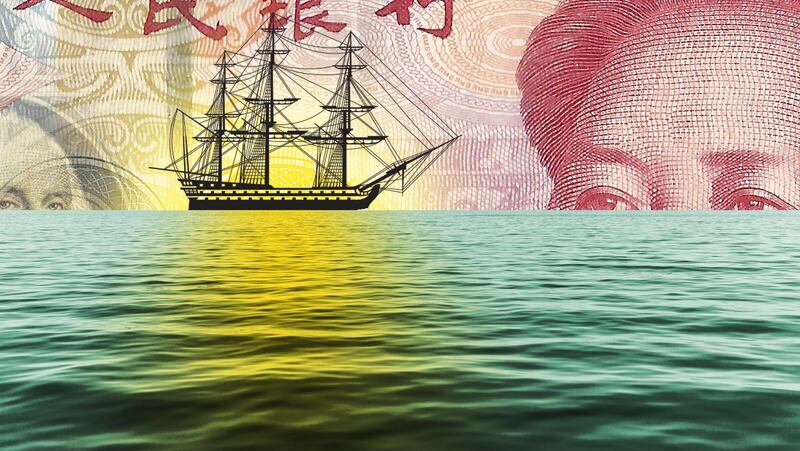Vanguard Group amassed $5.2 trillion of client assets and revolutionised the US investment industry by offering low-cost funds to millions of Americans. Now it wants to do something similar in China, even if the strategy takes years to bear fruit.
More than four decades after Vanguard founder Jack Bogle opened the first S&P 500 Index fund, the firm is laying the groundwork for a China expansion made easier by the nation’s opening to foreign asset managers. Vanguard is on track to more than double the size of its Shanghai office this year and may seek approval to sell products to wealthy investors as a first step before seeking a foreign-owned mutual fund license when regulators allow it in 2021, said Charles Lin, the firm’s China head.
Vanguard hopes to have an “obvious cost advantage” compared with local competitors, Mr Lin said. It may take time for Vanguard’s index-tracking funds to catch on in China, but he predicted that the appeal of passive investing will grow as the country’s markets become more efficient - and thus tougher for active managers to outperform.
“We hope to be able to quickly build up the size, achieve economies of scale and operational efficiency to lower investment costs as quickly as possible,” said Mr Lin, who joined Vanguard in 2011 and is on the committee responsible for its non-US business.
________
Read more:
[ Why the active money manager model is no longer viable ]
Invest like a Boglehead and build a low-cost portfolio of index funds
Finance guru Andrew Hallam’s new guide for expats wanting to become wealthy
Get rich and retire early by investing like Warren Buffett
________
Foreign investment firms are increasingly pushing into China as financial reforms open access to an asset-management industry that’s forecast to grow more than five-fold to $17tn by 2030, dwarfing markets such as the UK. While Vanguard is in one sense playing catchup to rivals including BlackRock that have operated China joint ventures for years, the nation is now offering foreign money managers the chance to run their businesses without local partners.
For Vanguard, the ultimate prize is the so-called wholly foreign-owned mutual fund license, which will allow it to eventually manage money for mass-market investors. While the company may have to wait three years before regulators grant such a license, it could in the meantime apply for a private fund management license to cater to rich clients and learn about the local landscape, Mr Lin said.
The company is “actively studying” both two options, and it’s “completely possible” it will do both, Mr Lin said.
Vanguard’s unique ownership structure - the company is owned by its funds and in turn its unit holders - allows it to limit costs to about one-tenth of the industry average in the US. The Valley Forge, Pennsylvania-based firm sells all products online, and doesn’t pay distributor commissions. It’s also very lean, employing about 400 investment professionals worldwide. Fewer than 100 people oversee almost $4 trillion in passively-managed funds.
That structure may give Vanguard an advantage in China, where fees are higher than those charged by counterparts in the US.
“Maybe after 20 or 30 years, we can achieve the same investment and operational efficiency in China like in the US, and then our costs would get close to those in the US too,” Mr Lin said. “But that needs the support of a relatively large size.”
For now, active funds remain more popular in China’s stock market that remains dominated by retail investors. The 15 top outperformers among actively-managed mutual funds in China over the past three years beat benchmarks by an average 15 percentage points, more than double the level in the US, according to data compiled by Bloomberg. At the same time, the worst 15 performers in China trailed their benchmarks by an average of just 3.2 percentage points, with the biggest loss at 8.6 percentage points.
Among some of the other China plans Mr Lin outlined:
- Vanguard will probably have both actively and passively-managed funds in China, he said.
- The firm will set up its own direct-selling platform in China when it can sell mutual funds, and work with local distribution partners, Mr Lin said. While Vanguard typically does not pay commissions to distributors, many in the US sell the firm's products anyway because clients want them.
- Vanguard plans to more than double the headcount of its Shanghai wholly-foreign-owned business this year to over 20, mainly "infrastructure" functions like marketing, human resources, risk control and accounting.
- The firm is still studying ways to put together an investment team.
- While China's regulators recently vowed to lift the limit that a foreign manager can own in a local mutual fund business to 51 per cent, Vanguard's ownership structure prevents it from taking a stake capped at that level. The firm could potentially own 100 per cent of a local mutual fund business when regulators allow that in three years.






